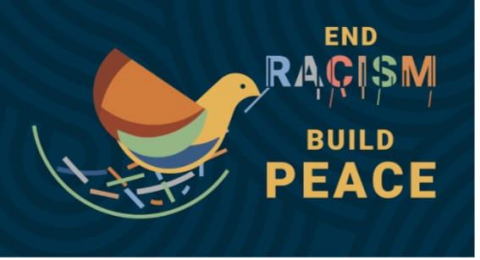Why Humanity Need To Build Peace Now More Than Ever Before
African News, Articles/Opinion, Latest Headlines Sunday, October 2nd, 2022
By Nnene Bassey
(AFRICAN EXAMINER) – Barely a week ago, this year’s International Day of Peace (or World Peace Day) was celebrated once again, across the globe. The event is marked annually on September 21 and the day is devoted to strengthening the ideals of peace, both within and among all nations and peoples.
Why I was reflecting on the essence of this very crucial annual event, the need for the entire human race to collectively work towards ending racism, build peace and harmony, kept running through my mind. Tranquility is my delight for development, unity and progress. Similarly, placidity is unique to an individual, a community, society and the world which opens doors for equality regardless of race and embrace social inclusion. This is attainable in the absence of war, fear, conflicts, anxiety, suffering and the resolution of conflicts by non-violence means.
The clarion call to further galvanize and intensify peace building and the fight against racism has become exceedingly imperative, particularly at a time like this when war and violence often monopolize our news cycles, the International Day of Peace is an inspiring reminder of what we can create together. Peace. Let’s give it a chance!
Racism poisons the mind, corrupts the society, breeds discrimination, marginalization, thus increase historic trauma, brings about Post Traumatic Stress Disorder (PTSD), lead to psychological disorder thus induce stigmatization, segregation, low self-esteem, isolation and at times, suicide.
In 1981, the United Nations General Assembly declared the third Tuesday of September as International Day of Peace. This day coincided with the opening day of the annual sessions of the General Assembly. The purpose of the day was and still remains, to strengthen the ideals of peace around the world.
Two decades after establishing this day of observance, in 2001, the assembly moved the date to be observed annually on September 21. So, beginning in 2002, September 21 marks not only a time to discuss how to promote and maintain peace among all peoples but also a 24-hour period of global ceasefire and non-violence for groups in active combat.
Notably, peace is possible. Throughout history, most societies have lived in peace most of the time. Today, we are much less likely to die in war than our parents or grandparents. On the other hand, conflict is a disagreement between individuals, group of people, organizations or a clash between interests, opinions, ideas principles etc.
Conflict must be as long as man remains in the state of incompatibility in attitude and behaviour. The view of conflict traditionally is, people belief that conflict is bad and should be avoided. It is also viewed in human relation as advocating for acceptance of conflict/believes that conflict is inevitable and not evil. Another view is the interactions view which encourages conflict and it brings about viability creativity and innovation etc.
For instance, conflict in Nigeria has always been as a result of broken social contract between the Government and its citizens. Citizens vote political office holders into power with the believe that they serve diligently to improve their living conditions, by providing social and economic infrastructure but the reverse is the case. Failed promises result in situations where the citizens become disgruntled. Consequently, they agitate and if their agitations are not well managed, it snowballed into conflict. Sadly, conflict becomes inevitable in the affairs of men, conflict can be destructive or constructive. Overtime, we often see that conflict is destructive when some of these components and factors, particularly in disagreement and struggle over land issues, embezzlement and misappropriation of fund, our attitude opinion, values and beliefs, power intoxication, rumours, gossips news, transferred or misplaced aggression and the likes.
It must however be acknowledged that conflict is positive, especially if is it effectively managed and eventually culminates in improved mutual understanding.
It is negative if it leads to a breakdown of law and order, uncertainty kidnapping, confusion, banditry, insurgency, insecurity, destruction of lives and properties again hindering all aspects of development are what will be prevalence in the society. Moreover, conflicts can be settled through several mechanism such as negotiation, reconciliation, mediation arbitration and litigation.
Government officials should live up to the oath of office and allegiance which they swore to provide to the citizens their constitutionally guaranteed basic needs of welfare, security and infrastructures, they should practice inclusiveness in governance. In addition, government officials should imbibe and practice the ideals of integrity, transparency, accountability and probity. Anything outside these values impact on the citizens negatively and make them o be disgruntled, thereby instigating conflict.
To commemorate the International Peace Day each and every one of us individually and collectively, one step at a time, can undoubtedly make a paradigm shift and change the narrative for the growth and development in the community, society and the world at large.
Mrs. Nnene Bassey is a member of Advocacy for Persons with Albinism Network (APAN)
Related Posts
Short URL: https://www.africanexaminer.com/?p=81531






















